I am trying to use nvprof to monitor the performance of the GPU. I would like to know the time consuming of HtoD(host to device), DtoH(device to host) and device execution. It worked very well with a standard code from numba cuda website:
from numba import cuda
@cuda.jit
def add_kernel(x, y, out):
tx = cuda.threadIdx.x # this is the unique thread ID within a 1D block
ty = cuda.blockIdx.x # Similarly, this is the unique block ID within the 1D grid
block_size = cuda.blockDim.x # number of threads per block
grid_size = cuda.gridDim.x # number of blocks in the grid
start = tx + ty * block_size
stride = block_size * grid_size
# assuming x and y inputs are same length
for i in range(start, x.shape[0], stride):
out[i] = x[i] + y[i]
if __name__ == "__main__":
import numpy as np
n = 100000
x = np.arange(n).astype(np.float32)
y = 2 * x
out = np.empty_like(x)
threads_per_block = 128
blocks_per_grid = 30
add_kernel[blocks_per_grid, threads_per_block](x, y, out)
print(out[:10])
Here is the out come from nvprfo:
However, when I add the usage of multiprocessing with the following code:
import multiprocessing as mp
from numba import cuda
def fun():
@cuda.jit
def add_kernel(x, y, out):
tx = cuda.threadIdx.x # this is the unique thread ID within a 1D block
ty = cuda.blockIdx.x # Similarly, this is the unique block ID within the 1D grid
block_size = cuda.blockDim.x # number of threads per block
grid_size = cuda.gridDim.x # number of blocks in the grid
start = tx + ty * block_size
stride = block_size * grid_size
# assuming x and y inputs are same length
for i in range(start, x.shape[0], stride):
out[i] = x[i] + y[i]
import numpy as np
n = 100000
x = np.arange(n).astype(np.float32)
y = 2 * x
out = np.empty_like(x)
threads_per_block = 128
blocks_per_grid = 30
add_kernel[blocks_per_grid, threads_per_block](x, y, out)
print(out[:10])
return out
# check gpu condition
p = mp.Process(target = fun)
p.daemon = True
p.start()
p.join()
nvprof seems to monitor the process but it doesn't outcome anything though it reports that nvprof is profiling:
Furthermore, when I used Ray (a package for doing distributed computation):
if __name__ == "__main__":
import multiprocessing
def fun():
from numba import cuda
import ray
@ray.remote(num_gpus=1)
def call_ray():
@cuda.jit
def add_kernel(x, y, out):
tx = cuda.threadIdx.x # this is the unique thread ID within a 1D block
ty = cuda.blockIdx.x # Similarly, this is the unique block ID within the 1D grid
block_size = cuda.blockDim.x # number of threads per block
grid_size = cuda.gridDim.x # number of blocks in the grid
start = tx + ty * block_size
stride = block_size * grid_size
# assuming x and y inputs are same length
for i in range(start, x.shape[0], stride):
out[i] = x[i] + y[i]
import numpy as np
n = 100000
x = np.arange(n).astype(np.float32)
y = 2 * x
out = np.empty_like(x)
threads_per_block = 128
blocks_per_grid = 30
add_kernel[blocks_per_grid, threads_per_block](x, y, out)
print(out[:10])
return out
ray.shutdown()
ray.init(redis_address = "***")
out = ray.get(call_ray.remote())
# check gpu condition
p = multiprocessing.Process(target = fun)
p.daemon = True
p.start()
p.join()
nvprof doesn't show anything! It even doesn't show the line telling that nvprof is profiling the process (but the code is indeed executed):
Does anyone know how to figure this out? Or do I have any other choices to acquire these data for distributed computation?


